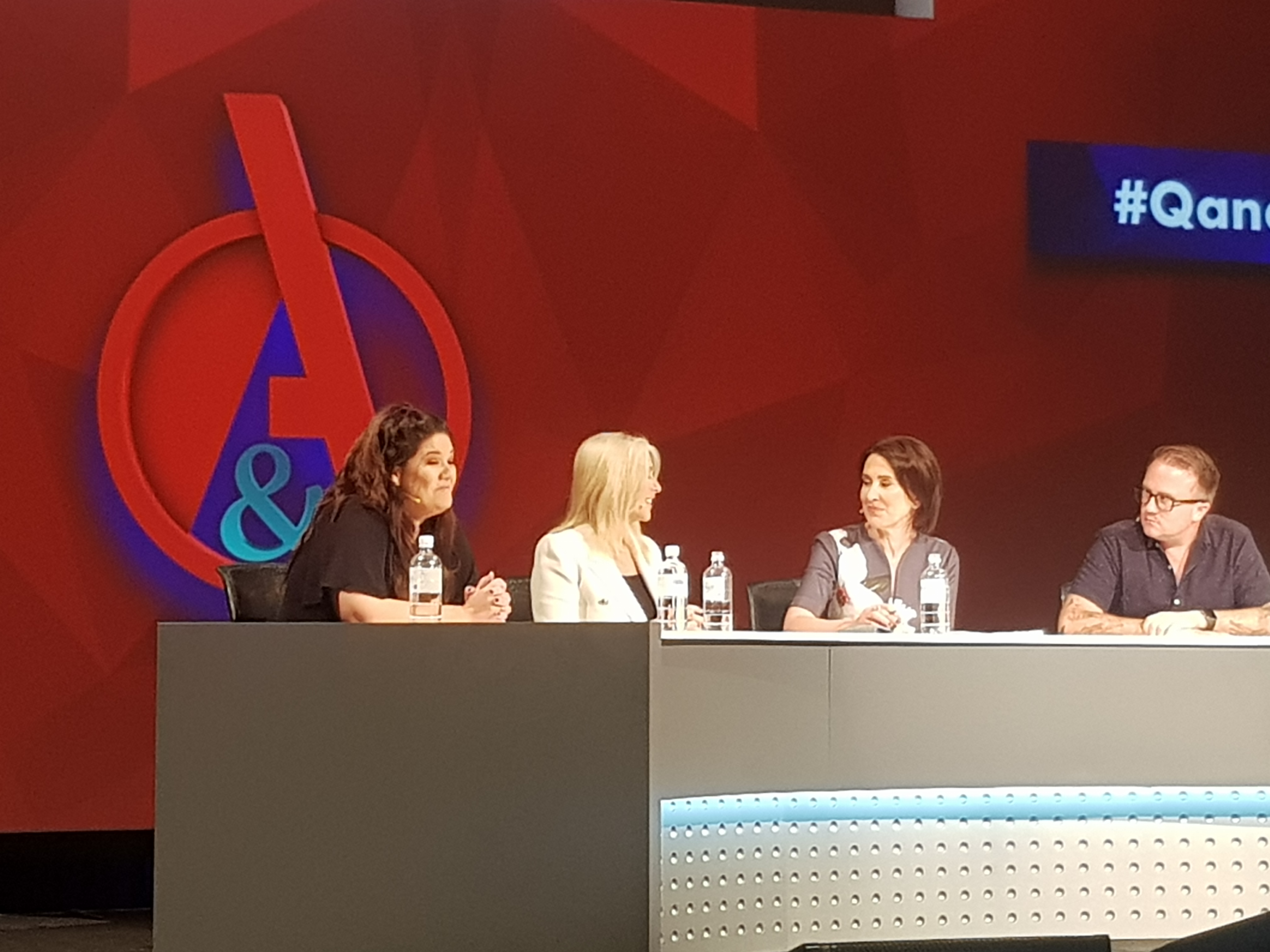Appetite for #MeToo movement in Australian media ‘drying up’
The #MeToo movement has been generally positive for both women and men in the workplace, however Australia’s restrictive defamation laws, combined with our drift towards conservatism and the lack of actual behaviour change, has prevented more change being enacted, a room full of radio executives has heard.
In addition, the movement has struggled to cut through in the media industry, with veteran news reader, media personality and activist Tracey Spicer saying commercial radio companies can be some of the most toxic environments in which to work.



#metoo has begun to equal mob rule.
I support women and men speaking up against offences, but not at the expense of a presumption of innocence. We should thank our lucky stars that our version of free speech doesn’t give people freedom to take down other people’s lives and reputations with sometimes baseless accusations. Do not underestimate the number of venal people who have axes to grind, scores to settle and inflated self righteousness. Restrictive laws? No…we have it right.
Thank god there’s a middle aged white guy here to tell us that #metoo ‘equals mob rule’. I mean maybe you’re not ACTUALLY a middle aged white guy but since you sound exactly like one, you might as well own that.
When you’re done clutching your pearls though, I’d suggest you have a look at where you’re posting your comment and have a think about what ‘mob rule’ actually is when it comes to the care and maintenance of a late stage capitalism society, and how it is managed.
I know you won’t, and you’ll just huff and puff and ignore anything that doesn’t help you keep your obscene level of privilege, but there’s plenty of historical evidence for what happens when folks like you don’t pay attention to what is actually going on.
Take a shot for every SJW buzzword.
The buzzwords in this comment section are out of control! I’m already plastered!
@Dave
Wow. Simply wow.
Firstly dont assume who i am.
Because you’re just about completely wrong.
People like you shut down challenge to the debate ( clue: debates have two sides) because you’ve not thought about the other side.
Reputations and livelihoods.are being ruined. I feel for people like Geoffrey Rush
Your language is toxic.
Huff and puff. Is that the male equivalent to females being hysterical?
Just about everything you said about me ( or who you think i am has an equal opposite im female terms.
@Dave please just shut up.and go away.
We females dont need dumb blokes like you.
‘I mean maybe you’re not ACTUALLY a middle aged white guy but since you sound exactly like one, you might as well own that’
I mean seriously madam, do read what you’re expostulating about.
‘People like you shut down challenge to the debate ( clue: debates have two sides) because you’ve not thought about the other side.’
Actually, I have. I know the statistics on how many accusations of assault are false (statistics that are most definitely on the conservative side).
Do you?
Because if you do, then well, you truly are a horrible person.
And if you don’t, well, you might want to consider educating yourself before puffing yourself up with such faux outrage.
Great retort fellow human. Every comment section needs defending. #thefutureisfemoid #blacklivesmatter #orangemanbad #kanyedumb #wasntrealcommunism
The metoo movement went off the rails when it started attacking people to promote news readers careers instead of stopping harassment and assault. It is an important discussion, but when it turned into trial by media with no real evidence and the accused were blindsided with no opportunity to reply before things were broadcasted or printed, it sank. The cases mainly against older men seem manufactured. The movement instead of helping women ruined lives. Those that did not do any sort of intervention are really responsible. The media conducting its own trial instead of reporting was also a major factor. The movement in in current incarnation has set women back and the only ones who profited are the ones going around making speeches and getting awards. No real change has come.